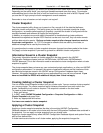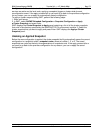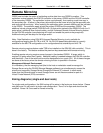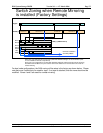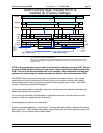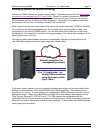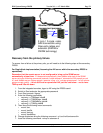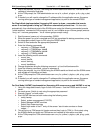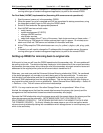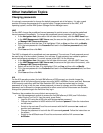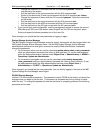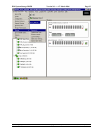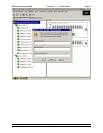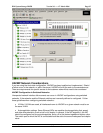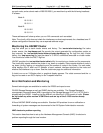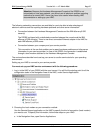
IBM System Storage DR550 Version 3.0 ------17 March 2006 Page 80
IBM Storage Systems Copyright © 2006 by International Business Machines Corporation
7. If needed, you will need to change the IP address within the application server (the server
running some type of content management application) to point to the remote DR550.
For Dual Node (HACMP) implementation (Assuming AIX servers are not operational):
1 Start the server (power on) in the secondary DR550.
2 When the power up cycle is complete and AIX has completed its startup procedures, using
the integrated console, logon to AIX using the DR550 userid
3 Switch to Root and enter the appropriate password
4 Start HACMP services on both nodes
o smitty hacmp
o system management (C-SPOC)
o manage HACMP services
o start cluster services
o select both nodes of the 2
nd
entry of the screen ‘‘start cluster services on these nodes….’’
5 This will bring up TSM as part of cluster services then Login (in approx. 10 minutes) as an
admin and check out TSM server and validate all information and data.
6 At the TSM prompt the TSM administrator can run q lic, q dbvol, q loglov, q db, q log, q stat,
q sys.
7 If needed, you will need to change the IP address within the application server (the server
running some type of content management application) to point to the remote DR550.
Setting up DR550 for mirroring back to original site
At this point in time you will have the DR550 operational at the secondary site. All new updates will
be coming to this site. The decision that was made prior to this determines if the current secondary
site becomes the new primary site or takes the role of the secondary site again once the issues are
addressed at the original primary site and all current data is transferred to it.
Either way, you must now redo the Enhanced Volume Mirroring relationship (RVM). As mentioned
in the above paragraph, all new data is currently being sent to the secondary site. To make sure
that the data is not overwritten and that it is propagated to the other site correctly, you must now
remove all RVM relationships from the storage systems. This can be done by just right clicking on
any logical drive that is part of a mirror relationship. Select Remove Mirror Relationship -> Select All
-> Remove -> Yes. This will remove all the mirror relationships.
NOTE: You may receive an error if the other Storage Server is not operational. When it has
finished, the storage server that has the newest data becomes the primary site (source) and the
storage server that had technical issues becomes the secondary site (target).
Recreate the RVM relationship using the storage server with the newest data as the primary and the
other storage server as the secondary. NOTE: MAKE SURE THAT YOU CREATE THE
RELATIONSHIP CORRECTLY. THE STORAGE SERVER WITH THE NEWEST DATA IS NOW
THE PRIMARY (SOURCE). Do this by following the same steps as you did to set up the remote
volume mirroring relationship taking into consideration which storage server is now the primary and
which is the secondary.



